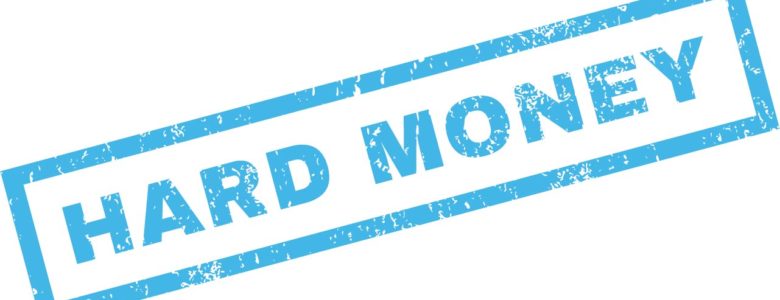Buying, renovating and reselling fixer-uppers is a great business if you want to make money quickly. It’s something both companies and individual investors can get into.
Of course, the key to making money in real estate is to first have money. And when you don’t have enough to fund fixer-upper projects, you can try borrowing from a lender.
There are various types of loans you can use for funding for flipping properties. This goes for commercial and residential structures. The key is finding a lender near you that’s familiar with funding fixer-upper projects.
If you’re currently in the business of flipping properties or planning to enter this lucrative industry, then this guide is for you.
Let’s take a look at why hard money loans may be the best funding for flipping properties.
How Fixing and Flipping Works
For those new to flipping, it’s all about buying cheap and selling higher. And what better way to do this than to purchase a beat-up property and making it desirable? This is the philosophy of building properties – buying low, selling high.
The cheapest properties you can find are those that are in poor condition and sometimes uninhabitable. However, you want to calculate what it will take to fix it up to ensure you get a return on investment. Otherwise, you’d be better off to rent out the property until you get back what you put in.
There are various ways you can find fixer-uppers, such as from auctions, wholesalers, and off-market properties.
Why Short-Term Loans Are Best for Funding Flipping
It wouldn’t really make sense to get a 30-year mortgage on a property you’re planning to resell in a few months. Plus, traditional lenders and banks aren’t willing to lend to borrowers if they’re not planning to have the property long-term.
It’s very easy to secure a loan for a long-term rental property, as long as you don’t have more than four mortgage loans out. Keep in mind that banks make money off of interest rates, which makes long-term loans more appealing to them.
When it comes to flipping properties, you buy and sell the property within a year. This is very short-term, which calls for a loan that suits this purpose.
This is where hard money loans come into play. The issue is they can sometimes be harder to find and more expensive due to the higher interest rates.
How Short-Term Loans and Flipping Works
Hard money loans are just one form of short-term loans you can pursue. For instance, you can go after portfolio money and private money as alternatives.
Either way, you can expect to pay more in interest compared to loans from traditional lenders and banks. This is because the loans are riskier for the lender and the loans are short-term.
Once you find a property you want to purchase, you can apply for a hard money loan. There are certain requirements and terms you must meet and agree to in order to get funding for flipping.
Let’s look into this further.
Getting Funding for Flipping
Hard money lenders offer short-term loans that can last as little as 12 months, sometimes less. The terms are normally flexible, but the rates aren’t negotiable.
In most cases, the loans have interest rates between 12% and 18% and charge between 2 and 5 points. A point is equivalent to one percent of the loan amount. This is charged on the loan.
In some cases, the points aren’t charged until you sell the property and pay the loan in full.
What About the Down Payment?
Here’s what makes hard money loans that much more attractive. The down payment for them is typically low. Unlike with traditional lenders, hard money lenders base your loan off the final value of the property you purchase.
If your fixer-upper is worth $60,000 now and then $125,000 after you fix it up, then your loan is based on the repaired value of $125,000.
This allows you to finance the property, as well as some of the repairs. Here’s an example of a hard money loan that finances 65% of the value (after repairs):
- Price of property: $75,000
- ARV: $150,000
- Repair cost: $30,000
- Loan 65% of ARV: $97,000
In this case, you get the entire price of the property and $22.5K. The reason lenders don’t give you 100% is because they’re afraid you won’t work as hard to sell the property. By giving you a percentage of the repair costs, you’ll have the incentive to make the deal work.
In the scenario above, the costs are $3,900 for the four points. Then the interest at 14% is $6,825 paid over the course of six months. Then there are other fees, such as appraisals and other services the hard money lender may charge for.
Buying Fix and Flip Properties as Cash
You’ll find that most people that get hard money loans will make their offer as a cash deal versus a loan. Since this is a very competitive market, it’s better to have a cash offer to make your deal more appealing.
Cash offers don’t come with terms and conditions like loans do. Sellers are looking for a clean, quick transaction.
Finding Funding for Flipping
Getting a hard money loan for your flipping projects shouldn’t be a hassle. With the right lender, you can have a loan tailored specifically to your needs. This is exactly what you get when you apply for a loan with Realty Resources Corporation.
Since 1976, we’ve helped countless investors purchase properties for flipping and rentals. We’ve closed thousands of loans in the state of Georgia and can do the same for you.
If you’re currently a flipper or looking to become one we can help. Hard money loans are a great way to get quick funding for fix and flip deals. Contact us today to get approved fast!

